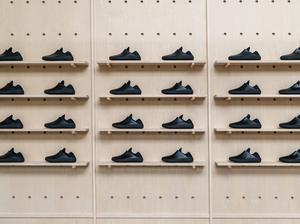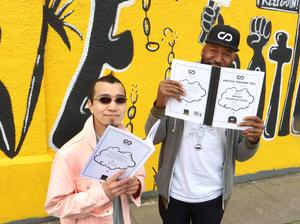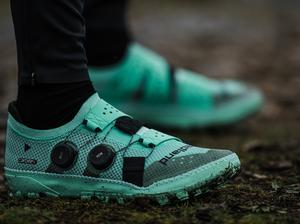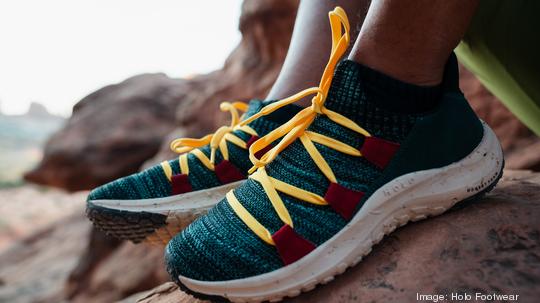
For Rommel Vega, sustainable products shouldn’t be a luxury.
As a footwear industry veteran, the designer saw the big brands leaving out a big swath of the market when it comes to sustainable shoes. Specifically, the $50 to $100 price point that he sees as attainable to more people.
“There are people doing sustainability but they are $150. The world doesn’t need another $150 sustainable shoe,” he said.
In 2020, Vega launched Holo Footwear. The Portland startup is focused on that price point of $50 to $100. The company has two products on the market in men’s and women’s sizes that can be found in 25 Nordstrom locations as well as online, plus select Dick's Sporting Goods, Backcountry, Macy’s and Public Lands stores.
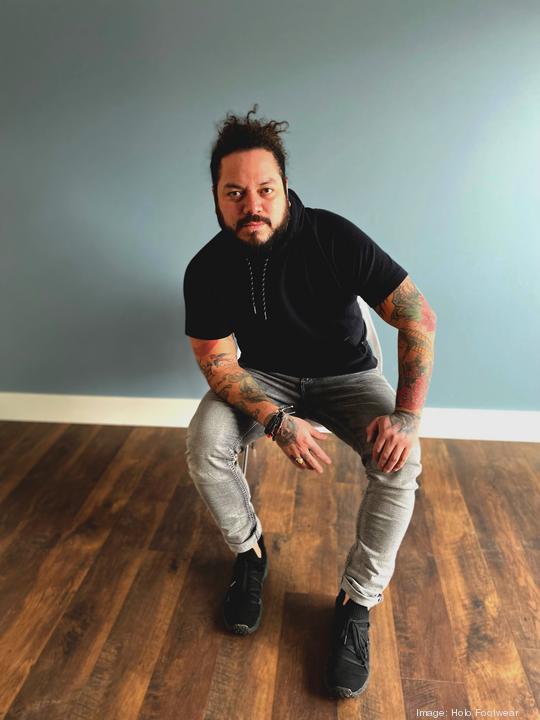
The shoes feature post-consumer recycled EVA and rubber and recycled upper materials where possible, according to the company. Next year the company plans to roll out direct-to-consumer sales as well as a gender-neutral sandals.
Vega isn’t releasing sales details, but he said products are on shelves or in consumers' hands.
Vega has been in the footwear industry for 18 years. He has worked at Puma, DC Shoes, Columbia Sportswear, Keen and Merrell. However, when the Covid-19 pandemic hit, Vega, like many people started thinking about priorities and who he wanted to work for.
“After being in the machine for so long, I knew there was going to come a point in time — after Columbia, Keen and Merrell, the trifecta of outdoors — where do I go next,” he said. “The pandemic changed a lot of people’s desires and you want to control your own destiny.”
Want more Portland startup news? Sign-up for The Beat delivered to your inbox twice weekly
Vega was a casualty of a change in direction at Merrell, but he says it’s the best thing that has happened to him and clarified where he could move next on his own terms.
“No longer can you sit in a corporate office and think these people care about you or have loyalty,” he said.
In summer 2020 he started work on Holo. By December the company was created. By January he had samples and started cold calling retailers and reaching out to contacts. Early on, the buying team at Nordstrom was interested and Backcountry responded right away to a cold email, he said.
Vega jokes that he spent a lot of time Googling the email format for different retailers.
“But, that’s the spirit of entrepreneurship,” he said, that was instilled in him early on by his mother who had her own restaurant.
Vega has funded the company himself and through a small round from investors including Elevate Capital, friends and family, and several angel investors. According to regulatory filings the company is closing a $1.5 million round.
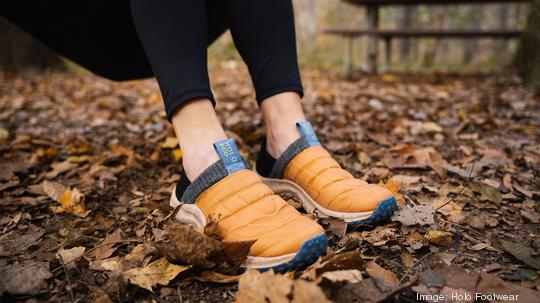
To help finance working capital for purchase orders the company also worked with lender SouthStar Capital out of South Carolina.
As he went to venture capitalists, even with $450,000 in orders, he met resistance, Vega said. However, with the current momentum and retail partners he is hoping raising a round next year will be a different experience. He is already getting more interest but he is being careful about which partners he picks.
The team at Elevate is excited about the company and backing Vega, said Ben Nahir, venture principal at Elevate. The Holo investment came from Elevate’s Innovation Gap Fund, which is backed by Business Oregon.
“Beyond the technical aspects of the shoes, the overall product design is beautiful. The company’s leadership also represents everything Elevate looks for in a startup team: diverse founders with complementary skills and deep industry expertise,” Nahir said in a email. “More than anything we are continually amazed by Rommel’s energy and drive as the CEO of Holo; every time we talk he seems to have some fantastic update, from new purchase orders to industry partnerships to future product offerings.”
Next year Vega expects to have a new president installed and she will focus on the business and allow him to focus on the company’s creative pursuits. The company is finalizing announcement plans for the woman who will take that role.
In addition to ensuring that a sustainable shoe is attainable for the masses, Vega wants to instill a culture of inclusivity at the company and its brand.
“I found that a lot of minorities are left out of the outdoor footwear conversation in general,” said Vega, who identifies as Latinx. After working at big brands in the space he also saw the need to redefine the outdoor market, which is undergoing its own reclamation by Black, Indigenous and people of color communities.
Vega wants to shift thinking about an outdoor market to thinking about the broader idea of outside.
“It’s an active lifestyle. The minute you step outside your house, we want to gear (those consumers),” he said. “We really care about the inclusivity of people.”
The company is a team of six with three people, including Vega, working full time. He expects the company will grow with a remote culture.
